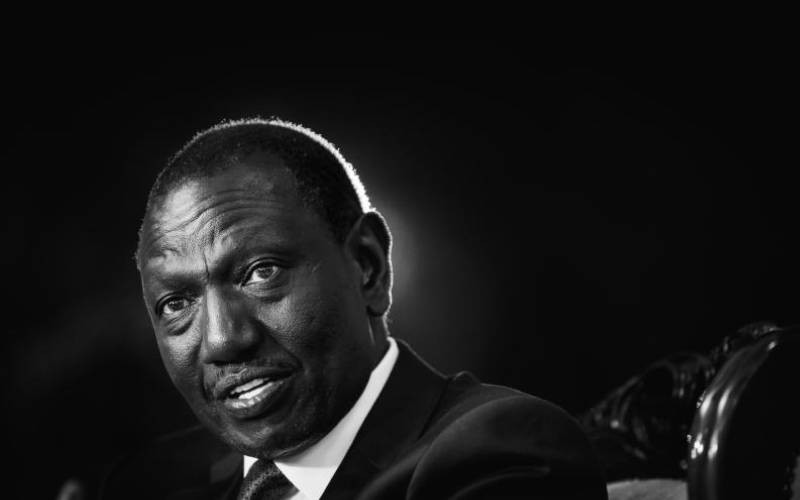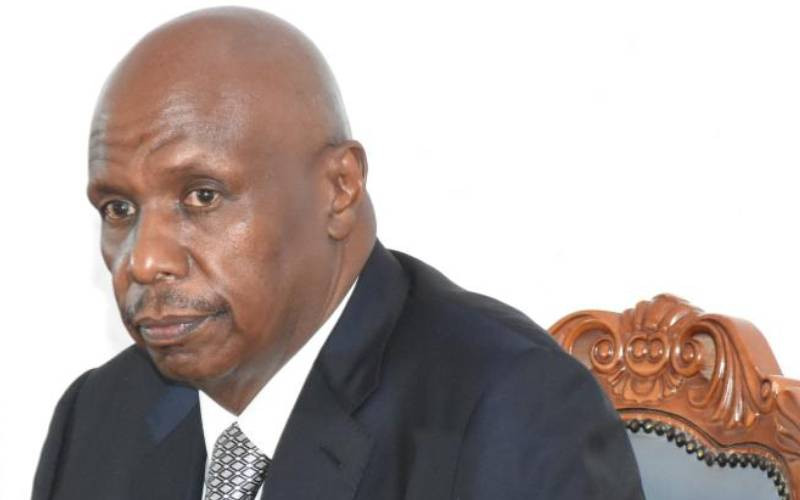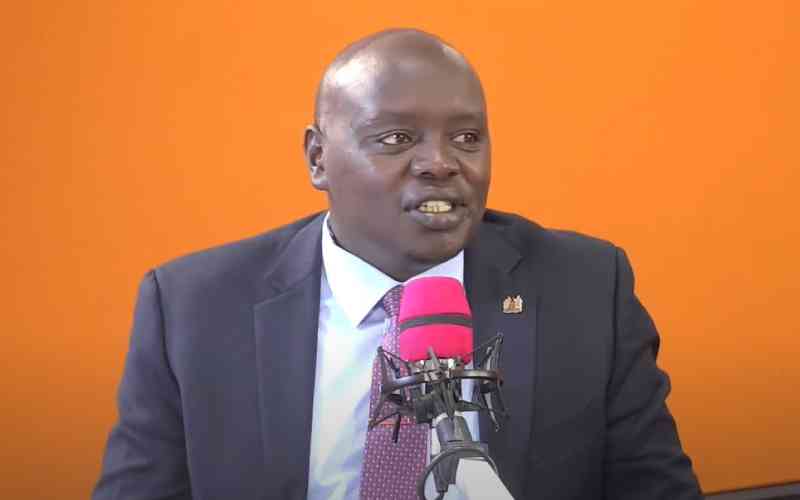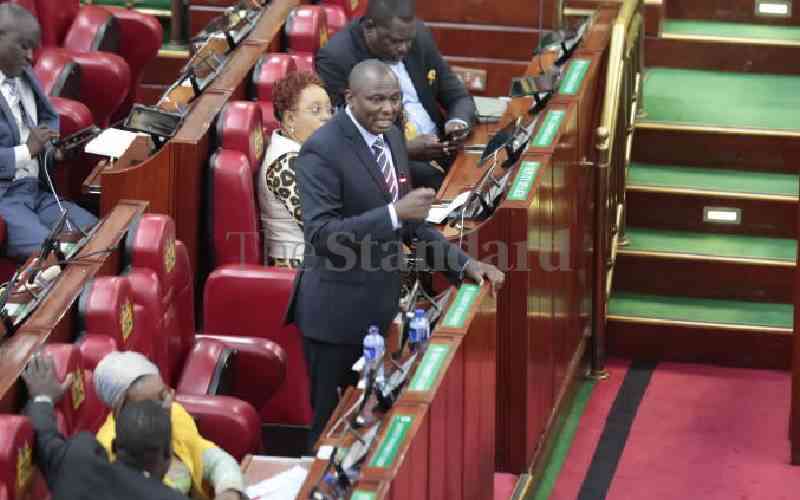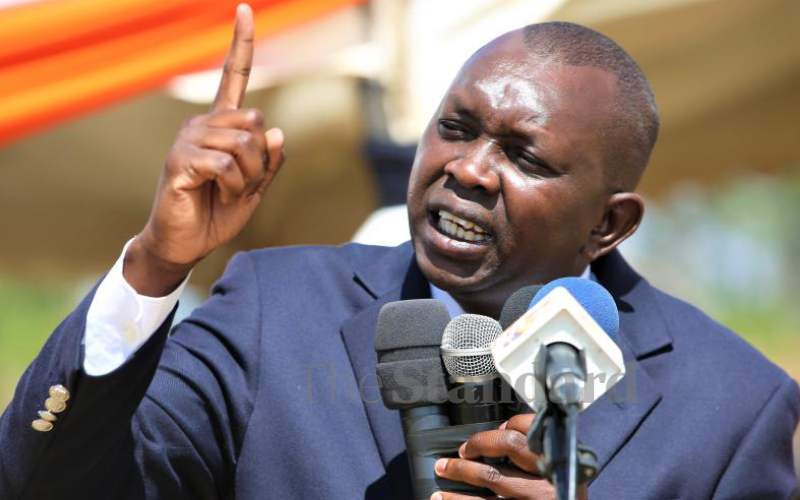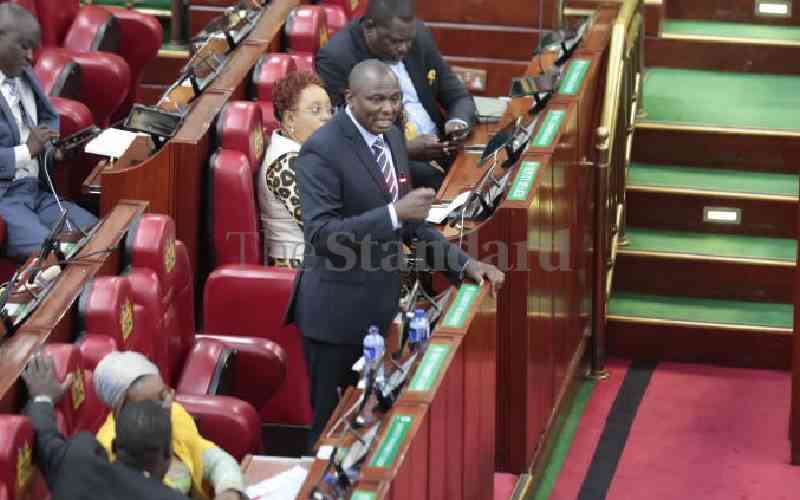
They won their master’s favour and lost the people. The makeup of their offices insulates them from incurring such losses, from issuing embarrassing, half-hearted apologies.
The independence the Constitution grants to Parliament should protect lawmakers from references like sponges, turncoats, conveyor belts and puppets.
Similarly, it would have spared the legislators from the growing calls to recall those who voted in favour of the Finance Bill 2024. Right now, it seems right the only thing keeping lawmakers in employment is the lack of a proper Independent Electoral and Boundaries Commission (IEBC).
MPs have perennially sacrificed their independence at the altar of Executive approval. They turn a deaf ear to the voices of their true bosses, wananchi, unabashedly following their political masters’ instructions, which they do with unbridled enthusiasm.
As he paraded them at State House on Thursday, President William Ruto only proved his chokehold on the arm of government that should keep him in line. Lawmakers gave him a standing ovation as he walked to the front, escorting his concession speech with applause.
Hours earlier, they had rushed the deployment of the Kenya Defence Forces to help quell anti-tax protests amid blows and jeers. At State House, they listened to the president’s latest instructions, withdrawing the Finance Bill, which they will follow without question.
When President Ruto instructed that they pass the unpopular bill, nothing, not even the roars of a crowd marching to Parliament, could stop them. Kenyans had made their views about the bill known, but the MPs repulsed them with ridicule.
National Assembly Majority Leader Kimani Ichung’wah dismissed the young Generation Z protesters as KFC-eating, Uber-riding and privileged. Majority Whip Sylvanus Osoro said they had not read the hated bill, with Kapseret MP Oscar Sudi claiming they did not understand it.
But on X spaces organised before and after the nationwide protests and media interviews, young Kenyans gave an eloquent account of why they opposed the bill. They tore down the punitive proposals that would make life harder for them.
None of that meant much to lawmakers. The president had spoken. His word was final. Such is the attitude adopted last year when lawmakers bulldozed the controversial housing levy, which has recently been exposed as poorly thought out.
Billions of shillings from the levy have been invested in Treasury bills and bonds, as the government struggles to put the funds to their intended use.
More recently, they established the unpopular office of chief administrative secretaries, which the courts found in two instances illegal.
MPs excel at pleasing their political masters. In the last two parliaments, whatever former President Uhuru Kenyatta said was law. Like Ruto, he commanded superior numbers in the august House, which he used to force through controversial policies.
Despite their spirited dissent, the Raila Odinga-led opposition was helpless against Uhuru’s MPs during their first term in office. In the wake of Uhuru’s March 2018 handshake with Raila, the opposition shifted loyalty to the then president.
They neither saw nor heard any evil. That was left to Ruto’s Tangatanga allies, who had assumed the role of opposition and were, as expected, emasculated. What came out clear then was that even opposition MPs were beholden to their political master and not the people, in whose trust they were in office.
The 13th parliament, observers have noted, has only strived to lower the already low bar set by its predecessor. Law Society of Kenya President Faith Odhiambo has described the current August House as the worst in Kenya’s history.
“I have never seen a more callous and irresponsible parliament than this one... they dare tell the people that the bill was as big as the Bible and they could read all that. We have sponges who take orders and execute,” Ms Odhiambo said during an interview on Spice FM last Friday.
Homa Bay Senator Moses Kajwang’ described the lawmakers as turncoats for betraying the masses and their constitutional mandate.
“You blame the Gen Z for coming to this Parliament - a Parliament of owls, a Parliament of sellouts?” Kajwang’ said last week, faulting his colleagues for flaunting their opulence to struggling Kenyans.
Kenya’s Constitution did not foresee a crippling of the Legislature. Concerned that the colonial constitution had made the Executive and Parliament bedfellows, Kenyans divorced the two arms of government.
By adopting the presidential system of governance, Kenyans made the entire Legislature an oversight body of the Executive. While the previous dispensation had left that job to the opposition, the new one was meant to charge the majority and minority sides with that task.
That was only on paper. In both houses of Parliament, the majority does the Executive’s bidding, abandoning its crucial constitutional oversight role. Legislation, too, has been traded to the Executive.
Amendments to controversial proposals have been subject to the president’s approval. The initial concessions on the Finance Bill were announced at State House, where Ruto had summoned all his Kenya Kwanza MPs.
Observers have argued that by failing to heed the calls of the masses, MPs have failed in their representation mandate.
Parliament has functioned as an appendage of the Executive. This has been enabled by speakers who refuse to stand their ground, always enforcing instructions from above.
National Assembly Speaker Moses Wetang’ula has exemplified that perception.
“Moses Wetang’ula is the worst speaker because he is running the House as if he is a deejay at a disco matanga. Wetang’ula is a coward,” Nairobi Senator Edwin Sifuna said last Tuesday.
 The Standard Group Plc is a multi-media organization with investments in media platforms spanning newspaper print
operations, television, radio broadcasting, digital and online services. The Standard Group is recognized as a
leading multi-media house in Kenya with a key influence in matters of national and international interest.
The Standard Group Plc is a multi-media organization with investments in media platforms spanning newspaper print
operations, television, radio broadcasting, digital and online services. The Standard Group is recognized as a
leading multi-media house in Kenya with a key influence in matters of national and international interest.

